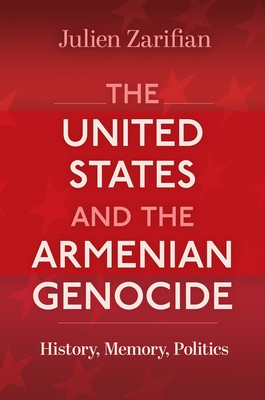
- We will send in 10–14 business days.
- Author: Julien Zarifian
- Publisher: Rutgers University Press
- ISBN-10: 1978837925
- ISBN-13: 9781978837928
- Format: 15 x 22.9 x 2 cm, minkšti viršeliai
- Language: English
- SAVE -10% with code: EXTRA
Reviews
Description
In 2021 the United States officially recognized the Armenian Genocide, ending five decades of political ambiguity by the U.S. government. That the U.S. maintained a position of non-recognition over several decades made this case a remarkable example of continuity in U.S. policy. Zarifian seeks to understand why and how the position of the United States evolved from a de facto recognition of the genocidal character of the Armenian Massacres to an ambivalent policy of "neutrality" that implicitly supported Turkey's official policy of denial. As a nation built on the destruction of Native peoples and on slavery the United States has often been particularly cautious in using the term genocide. The geopolitical importance of Turkey, however, as well as the result of battles for power and influence in Washington, D.C. by the organized Armenian American community also influenced U.S. policy on this matter.
EXTRA 10 % discount with code: EXTRA
The promotion ends in 21d.13:22:38
The discount code is valid when purchasing from 10 €. Discounts do not stack.
- Author: Julien Zarifian
- Publisher: Rutgers University Press
- ISBN-10: 1978837925
- ISBN-13: 9781978837928
- Format: 15 x 22.9 x 2 cm, minkšti viršeliai
- Language: English English
In 2021 the United States officially recognized the Armenian Genocide, ending five decades of political ambiguity by the U.S. government. That the U.S. maintained a position of non-recognition over several decades made this case a remarkable example of continuity in U.S. policy. Zarifian seeks to understand why and how the position of the United States evolved from a de facto recognition of the genocidal character of the Armenian Massacres to an ambivalent policy of "neutrality" that implicitly supported Turkey's official policy of denial. As a nation built on the destruction of Native peoples and on slavery the United States has often been particularly cautious in using the term genocide. The geopolitical importance of Turkey, however, as well as the result of battles for power and influence in Washington, D.C. by the organized Armenian American community also influenced U.S. policy on this matter.


Reviews